Nurturing Your Body, Mind, and Spirit: A Women’s Health Guide
Women’s health is an important and often overlooked topic that affects the overall health and wellbeing of women of all ages. From reproductive health and nutrition to mental health and physical fitness, women have a wide range of health needs that can be difficult to manage. By understanding the unique health needs of women, we can work together to ensure that our female population is healthy and thriving.
Our Most Common Topics
Cervical Cancer
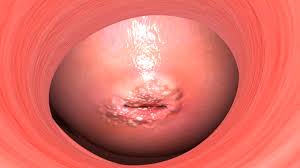
Cervical cancer is a type of cancer that develops in a woman’s cervix, the lower part of the uterus that connects to the vagina. This type of cancer is usually caused by the human papillomavirus (HPV). Cervical cancer can be detected early and treated, but if left unchecked it can spread to other parts of the body and become more difficult to treat. Treatment options for cervical cancer include chemotherapy, radiation, and surgery. Early detection of cervical cancer is critical in order to reduce the risk of developing a more aggressive form of the disease. Click to find out more.
CONTRACEPTIVES

Contraceptives are an important part of reproductive health care. They provide a safe and effective way to prevent unwanted pregnancy and can also help to protect against sexually transmitted infections. Contraceptives come in many forms, including birth control pills, intrauterine devices, condoms, diaphragms, and spermicide. Each of these methods has its own advantages and disadvantages, so it is important to discuss the right contraceptive option with a healthcare provider. With the right choice, contraceptives can help people make informed decisions about their reproductive health. Click to find out more.
ECTOPIC PREGNANCY

Ectopic pregnancy is a serious medical condition in which a fertilized egg implants in a place other than the uterus, most often in the fallopian tube. This type of pregnancy can be life-threatening and requires medical attention. Symptoms of ectopic pregnancy include abdominal pain and/or cramping, nausea and vomiting, light vaginal bleeding, and a sharp pain in the lower abdomen, often on one side. If any of these symptoms are present, it is important to seek medical care right away. Early diagnosis and treatment are essential to prevent serious complications. Click to find out more.
FERTILITY AWARENESS

Fertility awareness is a powerful tool for any woman looking to take the next step in understanding her body, her cycle, and her hormones. By tracking her fertility signs, she can gain insight into her reproductive health, gain control over her fertility, and make empowered decisions around contraception and pregnancy. Fertility awareness is a natural, safe, and effective way to monitor fertility, allowing women to track and understand their body’s cycle and hormones in order to accurately predict ovulation and detect their most fertile days. With this knowledge, women can make informed decisions about their reproductive health, including the use of natural contraception and the timing of conception. Click to find out more.
MENOPAUSE

Menopause occurs when a woman has not gotten her period for 1 year. Menopause is a natural stage in a woman’s life that marks the end of her reproductive years. It occurs when the ovaries stop producing estrogen and progesterone, the hormones responsible for menstruation. Symptoms of menopause may include hot flashes, night sweats, vaginal dryness, sleep disturbances, mood swings, and more. Menopause can also bring on bone loss and an increased risk of heart disease, stroke, and osteoporosis. With the right lifestyle and medical interventions, women can manage their menopause symptoms and enjoy a healthy, active life. Click to find out more.
MENSTRUAL CYCLE
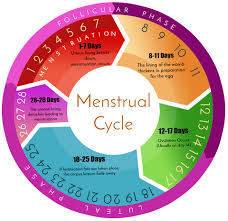
The menstrual cycle is a vital part of a woman’s reproductive life that is affected by hormones, physical and mental health, and lifestyle. It is composed of the follicular phase, ovulation, the luteal phase, and menstruation. During the follicular phase, the body prepares to release an egg, while during ovulation, the egg is released. Following ovulation, the luteal phase occurs, where the body prepares for a possible pregnancy. If pregnancy does not occur, the cycle ends with menstruation, where the uterus sheds its lining and the egg is shed. Menstrual cycles can vary in length and intensity, and can be affected by a variety of factors. Click to find out more.
MISCARRIAGE

Miscarriage is a deeply personal experience for those who have gone through it. It is an incredibly challenging time for both physical and mental health, and it can be difficult to know where to turn for support. Miscarriage is the spontaneous loss of a pregnancy before the 20th week of gestation. It affects up to 15% of pregnancies and is one of the most common complications during pregnancy. While the symptoms of miscarriage can vary, they typically include vaginal bleeding, cramping, and abdominal pain. Other symptoms may include a discharge of fluid or tissue from the vagina, backache, and loss of pregnancy symptoms such as nausea and breast tenderness. If you experience any of these symptoms, it is important to seek medical attention immediately. Click to find out more.
PAP TEST
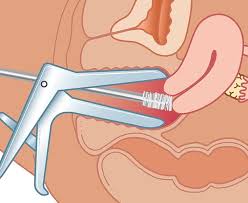
A PAP test, short for Pap smear or Pap test, is a screening test for cervical cancer. It involves collecting cells from the cervix and examining them under a microscope to check for any abnormal changes. This test can detect pre-cancerous cell changes in the cervix, which if left untreated, may become cancerous. The PAP test is a simple and effective way to screen for cervical cancer and it is recommended that women over the age of 21 receive one on an annual basis as part of their routine preventive care. Early detection of precancerous cell changes through the Pap test can help reduce the risk of developing cervical cancer. Click to find out more.
PELVIC EXAM
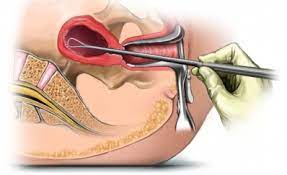
A pelvic exam is an important part of a woman’s health and wellbeing. It’s important to be prepared for the experience and understand what to expect. This guide will provide an overview of the process, from gathering the necessary information to preparing for the exam and any follow-up care. You’ll learn what to expect during the exam, how to prepare for it, and how to make the most of this important part of your health care. Click to find out more.
PREGNANCY TEST

Pregnancy tests are a vital part of determining whether or not a woman is pregnant. These tests, which can either be done at home with a kit or in a doctor’s office, use urine or blood samples to detect the hormone hCG (human Chorionic Gonadotropin). This hormone is released by the placenta shortly after conception and remains in increased levels throughout pregnancy. Pregnancy tests are generally reliable when used correctly, providing accurate results for most women within just a few days of missing their period. Home pregnancy tests are convenient and easy to use, but should always be confirmed by a doctor for those seeking conclusive results. Click to find out more.
THE BREAST
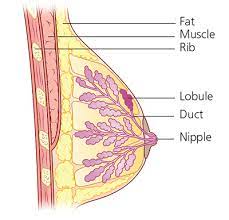
Breast health is an important issue for women of all ages. From puberty to menopause, women’s breasts can be subject to a range of conditions, both benign and cancerous. Common breast conditions can range from cysts and fibroadenoma to mastitis and breast cancer, with varying levels of severity. It is important for women to be aware of the different types of breast conditions and to be informed of the best ways to take care of their breasts and to seek medical advice when necessary. Click to find out more.
VAGINAL DISCHARGE

Vaginal discharge is a natural occurrence for all women and an important part of a healthy reproductive system. This discharge is composed of secretions from the cervix, vagina and other glands in the reproductive system. The color, consistency and amount of discharge can indicate different things about your reproductive health. It is important to understand the different types of vaginal discharge and what they mean to ensure that your reproductive system is functioning properly. Click to find out more.
VAGINAL INFECTIONS

Vaginal infections can be a common issue during pregnancy, but they don’t have to be. With the right precautions, you can reduce the risk of vaginal infections and make sure that your pregnancy is a healthy and safe one. In this article, we’ll take a look at the different types of vaginal infections that can occur during pregnancy, the symptoms to look out for, and how to reduce your risk of developing an infection. We’ll also discuss how to get the proper treatment if you do get an infection and how to manage it. Click to find out more.

